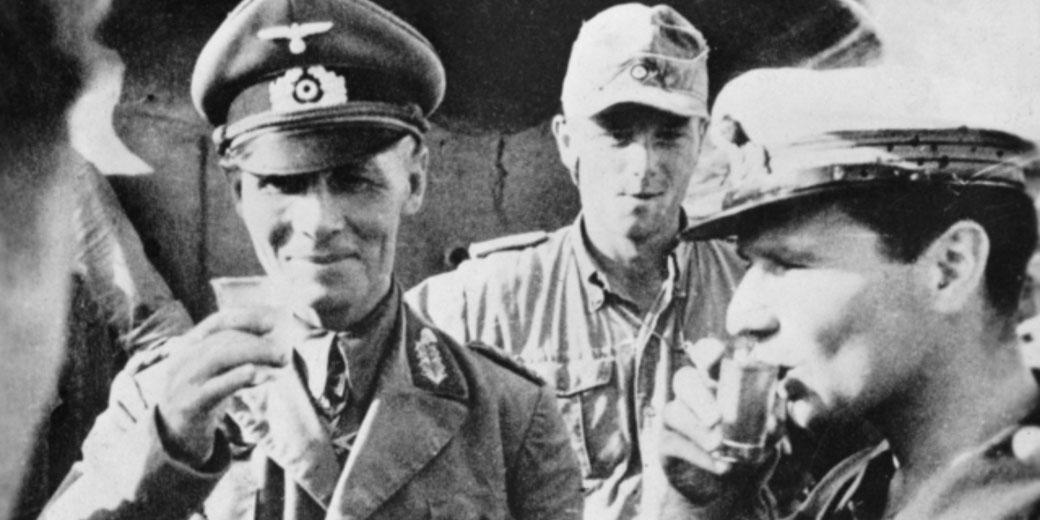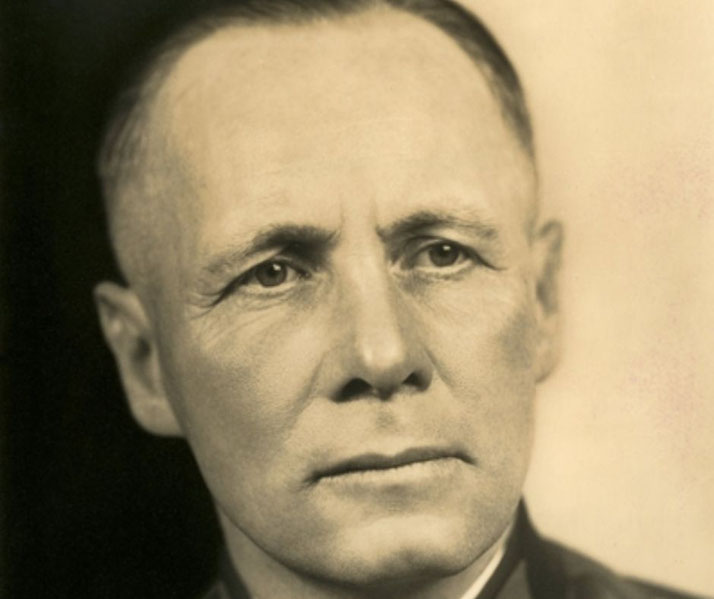The Desert Fox: the life and career of Erwin Rommel

Erwin Rommel, known as the "Desert Fox," was one of the most renowned and controversial military figures of the 20th century.
His bold and innovative tactics in the North African campaign of World War II earned him a reputation as a brilliant military strategist, while his association with the Nazi regime and his forced suicide have made him a figure of intense scrutiny and debate.
Here, we will take a deep dive into the life and career of Erwin Rommel, exploring his military accomplishments, his relationship with Hitler and the Nazi party, and the circumstances surrounding his death.
Early life
Born in 1891 in Heidenheim, Germany, Rommel was the son of a school teacher and grew up in a middle-class family.
He had an early fascination with military history and became a cadet in the German army at the age of 18.
Rommel quickly distinguished himself as a gifted and innovative commander, particularly in the area of mobile warfare.
During World War I, he saw action on the Western Front and was wounded several times.
After the war, he remained in the army and became an instructor at the Dresden Infantry School.
In the years leading up to World War II, Rommel continued to build his reputation as a brilliant strategist and tactician.
He gained national attention in 1937 with the publication of his book, "Infantry Attacks," which became a bestseller in Germany and other countries.
WWII and North Africa
When World War II broke out in 1939, Rommel was initially posted to France as the commander of a reconnaissance unit.
He quickly made a name for himself with his daring and audacious tactics, and was soon promoted to the rank of general.
In 1941, he was given command of the Afrika Korps, a German army unit sent to North Africa to support Italian forces fighting against British troops.

Rommel's approach to warfare in North Africa was characterized by speed, mobility, and surprise.
He believed that the key to success was to strike hard and fast, and to constantly keep the enemy off balance.
He employed tactics such as the "pincer movement," which involved attacking the enemy from two sides, and the "dash to the wire," which involved a rapid advance to break through enemy defenses.
One of Rommel's most famous campaigns in North Africa was the Battle of Gazala in May and June of 1942.
In this battle, Rommel's forces encircled and defeated a larger British army, capturing thousands of prisoners and a vast amount of equipment.
The victory allowed Rommel to advance into Egypt and come within striking distance of the Suez Canal.
Despite his initial successes, however, Rommel's forces were eventually pushed back by the Allies, and by late 1942, he had been forced to retreat to Tunisia.
In May 1943, he surrendered his forces to the Allies and returned to Germany, where he was hailed as a hero.
Rommel's campaigns in North Africa made him a household name and earned him the nickname "Desert Fox."
Atlantic Wall
In 1943, Rommel was appointed by Adolf Hitler to oversee the improvement of the Atlantic Wall and to prepare for the possible invasion.
Rommel took his responsibilities very seriously and quickly set to work on the project. He believed that the Wall was necessary to counter the overwhelming air and naval superiority of the Allies, and that it was the only hope of stopping an invasion.
Rommel also took steps to improve the German army's readiness for an invasion. He ordered the deployment of more troops to the coast and directed the construction of anti-tank obstacles and other defensive measures.
Despite his efforts, however, Rommel was unable to prevent the Allies from landing in Normandy on June 6, 1944.
The Atlantic Wall was heavily damaged by Allied bombing and naval bombardment, and the German defenses were quickly overwhelmed by the Allied forces.
Circumstances of his death
Rommel had become increasingly disillusioned with the Nazi regime in the final years of the war, and may had been involved in several plots to overthrow Hitler.
In July 1944, a group of German officers attempted to assassinate Hitler in what became known as the "July Plot." Although the plot failed, Rommel was implicated in the conspiracy, and was summoned to Berlin to answer to Hitler.
When Rommel arrived in Berlin, he was given the choice of facing a show trial, which would have resulted in the death penalty, or committing suicide.
Rommel chose the latter option, and was given a small amount of poison, which he ingested.
The official story at the time was that Rommel had died from a heart attack.
His death was a major blow to the morale of the German army and the German people, as Rommel was widely admired and respected for his military accomplishments.
Legacy
Rommel's legacy as a military commander has been the subject of much debate and analysis.
Some see him as a brilliant strategist who was let down by poor decisions and flawed planning by his superiors.
Others view him as a willing participant in the atrocities committed by the Nazi regime, and criticize his decision to serve under Hitler despite his reservations about the regime's ideology.
Despite these controversies, Erwin Rommel remains a fascinating figure in military history, and his legacy continues to be studied and debated by scholars and enthusiasts alike.
What do you need help with?
Download ready-to-use digital learning resources
Copyright © History Skills 2014-2025.
Contact via email
With the exception of links to external sites, some historical sources and extracts from specific publications, all content on this website is copyrighted by History Skills. This content may not be copied, republished or redistributed without written permission from the website creator. Please use the Contact page to obtain relevant permission.





